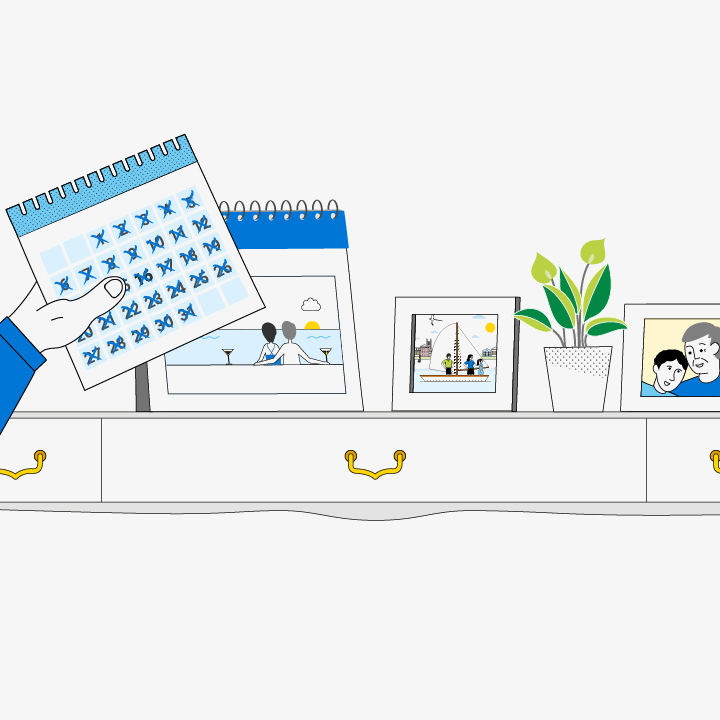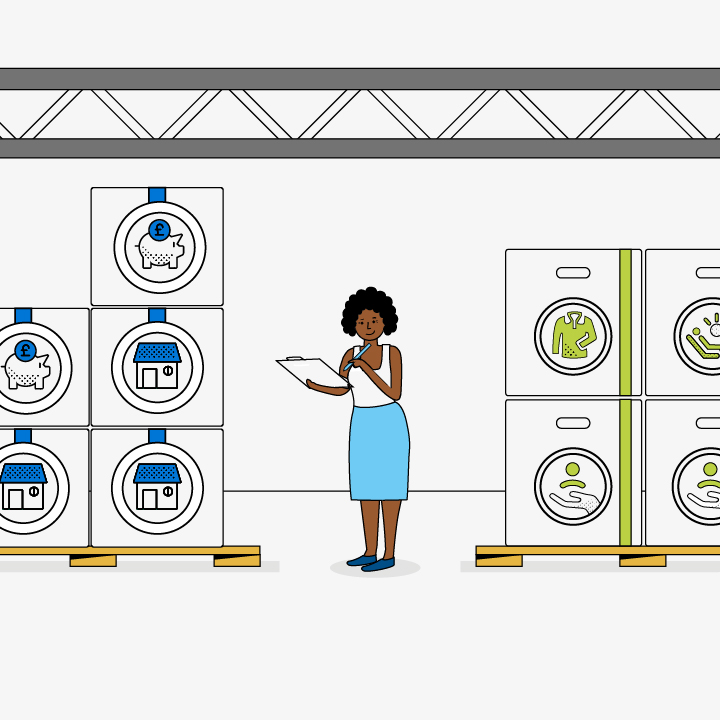Later life planning
As you get older in retirement your needs may change. Thinking about your health and wellbeing, how you'll manage your money, where you might live and what you want to happen to your estate when you die in advance could help make sure that your later years are just as colourful as the decades that came before.

Later life living
Whether you want to stay living in your home, sell up and buy something with friends, or move into a new retirement village, it's worth thinking about the options you have on where to live and what support you might need like:
- staying in your own home
- staying in your own home with modifications or care support, regular visits or a live-in carer
- moving closer to family or friends
- moving in with family or friends
- moving in to a retirement village or housing – with or without access to care support
- moving in to full time residential care.
If you are thinking about modifications to your home, paying for care support or needing to move in to residential care we have information and support help.
Powers of Attorney
Thinking about the future, and the possibility that you might lose your mental capacity and be unable to understand and make your own decisions, can be difficult. But it’s important to think about who you’d like to help you if you couldn’t do it anymore in advance and talk this over with your family or friends.
With a power of attorney, you can nominate one or more people to handle your affairs for you if you aren’t able to, whether you need support temporarily because you’re unwell, or in the longer term because you’ve become seriously ill.
However, you can only set up a power of attorney while you still have mental capacity. Having mental capacity means that you are able to make decisions and to understand why you need to make those decisions and what could happen as a result.
So Setting up a power of attorney in advance of when you need it is something everybody should consider. The benefits are that it:
- enables someone else to handle your affairs on your behalf
- gives you the opportunity to discuss with your family your wishes for how you want financial and/or healthcare decisions to be made if anything were to happen to you
- gives you peace of mind that someone you trust will be able to make decisions for you if it becomes necessary.
If you don’t already have a power of attorney in place it can be costly and complicated to enable someone else to look after your affairs later. Don’t assume your spouse or civil partner will be able to automatically manage your money and make decisions about your healthcare if you don’t have a power of attorney.
There are two types of powers of attorney: lasting powers of attorney and ordinary powers of attorney.
Writing a will
Making a will is important as it tells everyone what you want to happen to your estate (your money, possessions and property) after you die. If you don’t have a will, the law will decide how this is passed on and in some cases it could end up going to the Government.
For example, a brother and sister are very close, but their mother passed away some time ago and they haven’t spoken to their father in decades. Neither has married or had children. If one of the siblings were to pass away without a will (called ‘intestacy’ or ‘dying intestate’), under the rules in England and Wales their estate would go to their father, leaving the other with nothing.
Learn more about what happens if you don’t make a will on the MoneyHelper website.
Having a will in place makes sure that your wishes are carried out and prevents unnecessary distress at what is already a difficult time for those left behind. You can use your will to pass on your estate to friends or charities if that is what you want – it doesn’t have to be your immediate family. If there is no will, and the estate is unclaimed, it could pass to the Crown. As of September 2022, there were over 6,700 unclaimed estates on the Government list.
Your will can also be useful in making sure your estate is passed to friends and family in the most tax efficient way.
Your will should include two important instructions:
- who will have your estate when you die and how to share this out
- who will be in charge of following the instructions in your will and organising your estate. This person is called your executor or personal representative and you can have more than one. You can also leave all or some of your estate to your executors.
You can also include instructions for your burial or cremation.
Think about Inheritance Tax (IHT)
IHT is a tax on your estate after you have died. Your estate includes all your property, money and possessions.
There is normally no IHT to be paid if your estate is valued below the Nil Rate Band (NRB). This is currently £325,000 in the 2024/2025 tax year.
If your estate is valued over the NRB, the part of your estate over the threshold might be liable for tax at the rate of 40% unless you leave everything above the threshold to:
- your spouse of civil partner, or
- an exempt beneficiary for example a charity.
Both the IHT tax rate and NRB threshold are subject to change.
There is another type of NRB, the Residence Nil Rate Band (RNRB) which, if available, enables you to pass your home (or share of it) to your children or grandchildren. This includes step-children, adopted and fostered children.
If the NRB and RNRB aren’t fully used when someone dies, then they can go to their spouse or civil partner’s estate when they die. This means that the surviving partner’s NRB and RNRB thresholds may be higher.
Not everyone will qualify for the full RNRB allowance. If your total estate is worth more than £2m, the extra allowance tapers off, reducing by £1 for each £2 that the estate is worth more than the £2 million taper threshold.
More in this section
 Go&Retire - Retirement information >
Go&Retire - Retirement information >
If you're less than 10 years from retiring we've got some useful information, tools and activities so you can firm up your plan and go and have a colourful retirement.
 Picture your retirement >
Picture your retirement >
It's time to start firming up what your retirement is going to look like and what lifestyle you can afford. We've got some hints, tips and tools to help you.
 Take stock of your money >
Take stock of your money >
You'll need to take stock of your retirement finances to work out when you could retire and the lifestyle you'll have. Complete some activities to create your retirement budget.
 Your retirement plan >
Your retirement plan >
It's time to start firming up your plan, looking forward to how the next phase will work for you. In this short guide we'll help you break it down into the key phases.
 Releasing equity from your home >
Releasing equity from your home >
There may come a time when you need extra income to top up your pension or spend on something you need. Your home could be that source of income when you need it most.